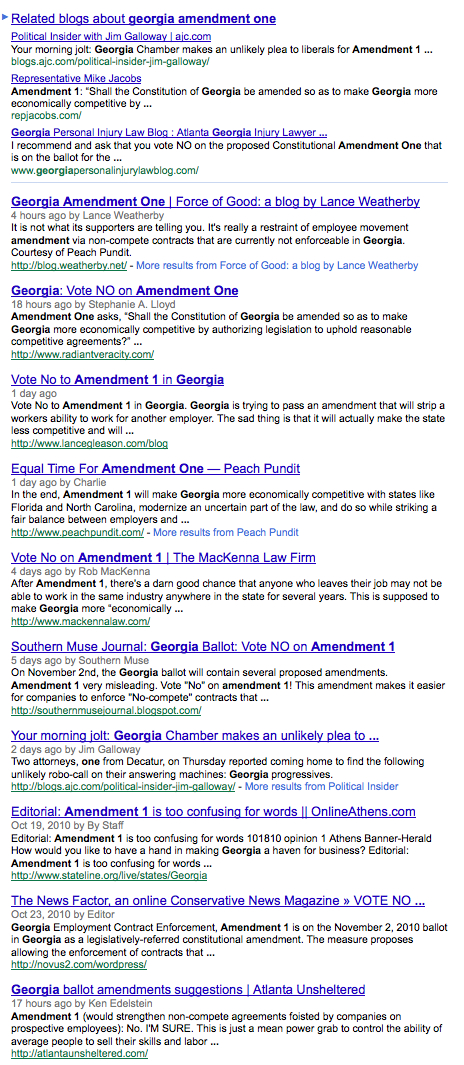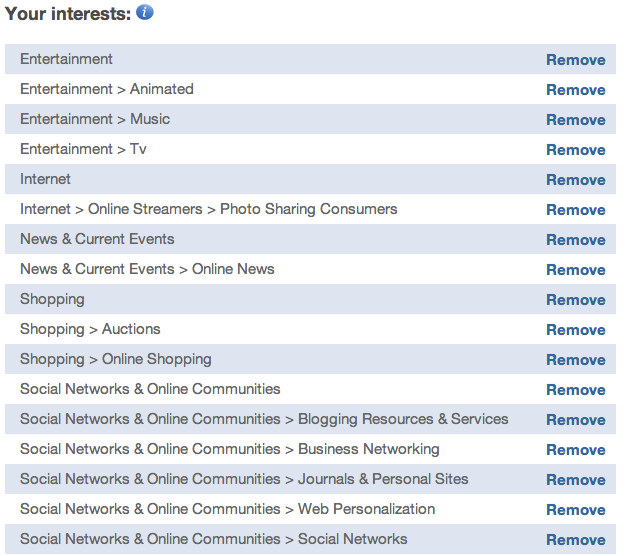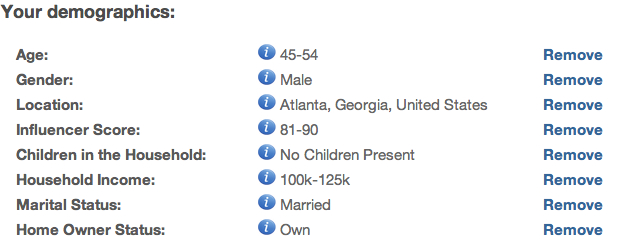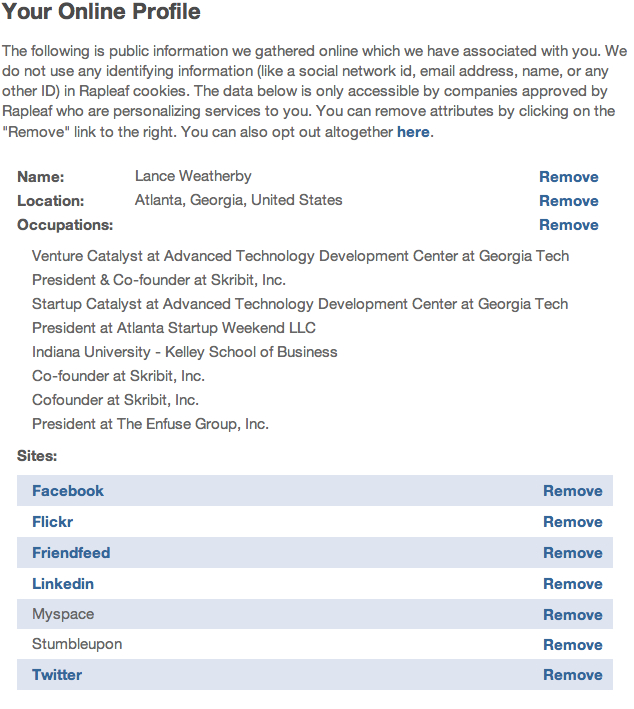For quite some time I have known that I was going to vote No on Amendment 1 on election day next Tuesday. I have kept pretty quiet about this personal decision. I tend to stay away from politics on FoG. The combination of a well funded vote Yes campaign complete with robocalls and an article by Atlanta attorneys Edward D. Buckley and Tom Stubbs led me to the conclusion that I needed to voice my opinion. For the moment I am publishing with permission from Mr. Buckley the article that inspired me to speak my piece.
Georgia voters will soon be asked to vote on an amendment to the state constitution which is intentionally phrased to deceive them.
The language reads: “Shall the Constitution of Georgia be amended so as to make Georgia more economically competitive by authorizing legislation to uphold reasonable competitive agreements?”
This language is a lie on its face. The amendment does not make Georgia more competitive; it makes us less competitive by restricting the free flow of labor upon which that capitalism depends.
The proposed constitutional amendment will shackle employees to businesses, and strangle the present rights of employees to go out and work for competitors or start new competing businesses.
Voters who are employees of any kind, be they doctors, news people, engineers, mechanics or salespeople should rise up and vote “No” to this radical change to our state constitution.
You’d never know it by reading the ballot question, but the proposed constitutional amendment relates to “non-compete agreements.” Employers may already force non-compete agreements on employees — as long as the agreements are reasonably limited in time, geography and job description.
Under the Georgia Constitution, if an employer imposes unreasonable restrictions, such as banning former employees from working in their field of choice forever or everywhere or in all kinds of jobs, then our courts are required to strike the entire agreement. That process obviously encourages employers to err on the side of keeping the restrictions contained in non-competes reasonable and limited.
This legal framework has worked well for decades. For every non-compete that you see challenged and overturned due to its being overly broad in time, geography or job definition, hundreds, if not thousands, of properly and reasonably limited non-compete agreements are entered and enforced without a hitch every year.
Indeed, business-oriented publications such as Entrepreneur, Forbes, Chief Executive Magazine, and others have consistently ranked Georgia as one of the top states in the country for business. So, current law has worked well for business.
Big Business wants more, however. They want to erode even this minimal protection for employees. How? The proposed constitutional amendment — drafted by lawyers who work only for management — permits judges to edit, not just strike, overly broad non-compete agreements.
This innocent-sounding change totally tilts the table on non-competes to favor employers. If this proposed amendment passes, employers will be able to write every non-compete agreement overly broadly, because there is no threat of the entire agreement being stricken anymore.
The worst that can happen is that, at some distant time in the future, a judge may make the employer use more reasonable restrictions in its non-compete agreement. In the meantime, employers can require an employee to sign these overly broad agreements or get fired, then fire them anyway.
The end result? Overly broad non-compete agreements dictate how and where many employees work. The economy loses because labor is prevented from flowing to the place where it is most productive. Consumers lose because entrepreneurs are prevented from leaving mediocre jobs to start their own businesses that offer better products and services.
Employees who don’t leave lose because they are stuck at jobs making less than they could make elsewhere. Employees who dare to make a break for new employment are likely to lose, as well. They will have to live under the overly broad restrictions for months, if not years, on the thin hope that the attorney they have to hire — at great expense — will some day get those restrictions eased.
The gain? Our already clogged courts gain even more lawsuits, and our judges gain power to become activists who make up and insert completely new terms into contracts.
Georgians should not surrender their constitutional rights to make way for this one-sided, pro-employer and anti-employee new law. This proposed amendment makes no sense whatsoever, but, at a time when unemployment is at record levels, it is especially wrongheaded.
Vote “no” to deceit. Vote “no” to anti-employee legislation. Vote “no” to Amendment One.
It’s a lie told to Georgia voters, and it’s a lie told to employees at a time when jobs are scarce. Free competition is a sacred American right. Vote “no” to Amendment One to preserve this right.





